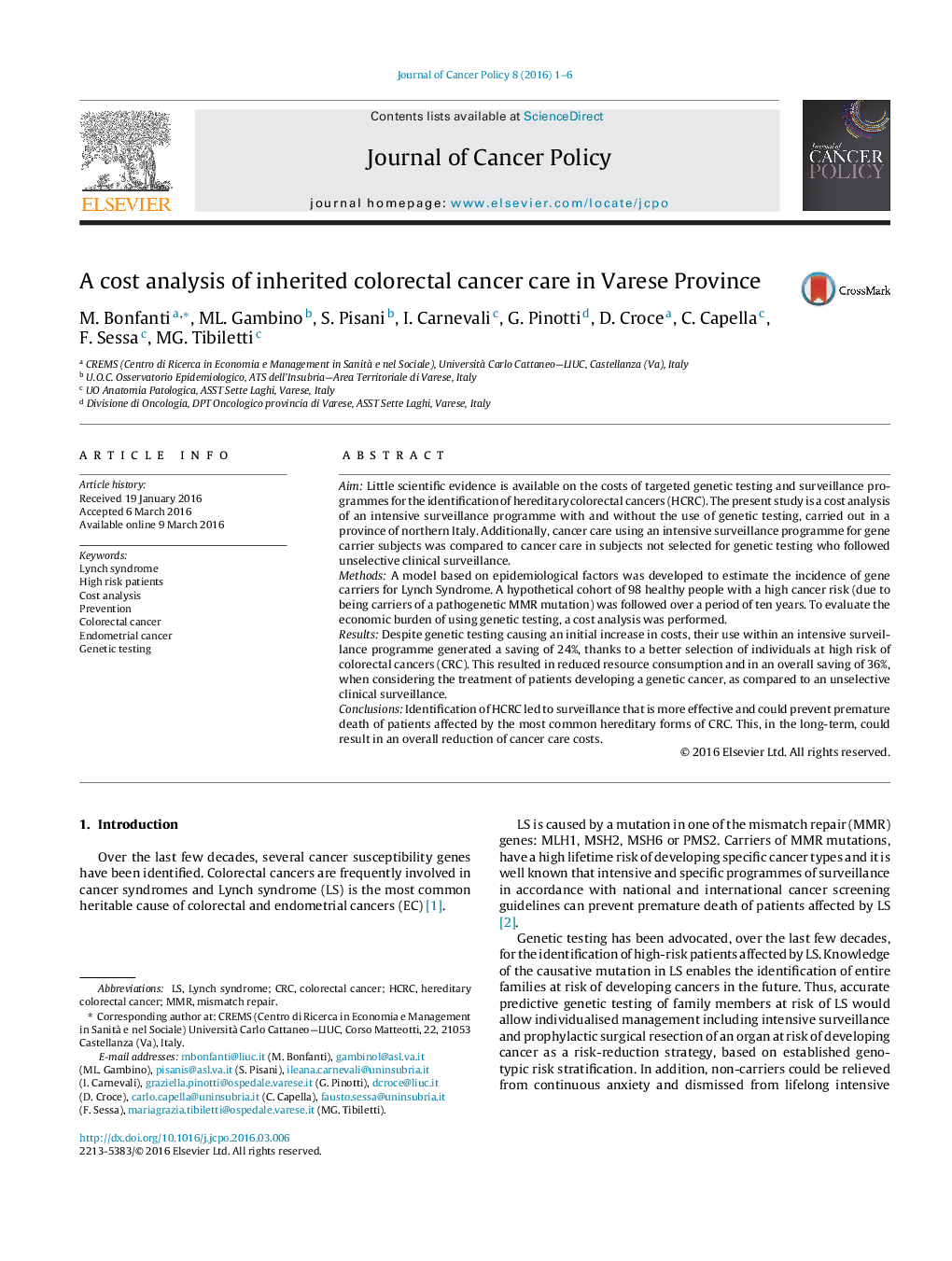| Article ID | Journal | Published Year | Pages | File Type |
|---|---|---|---|---|
| 3988706 | Journal of Cancer Policy | 2016 | 6 Pages |
•Identification of Lynch syndrome patients could result in an overall reduction of cancer care costs.•Genetic testing helps in a better selection of cancer high risk patients.•An intensive surveillance programme leads to economic saving in the long term.
AimLittle scientific evidence is available on the costs of targeted genetic testing and surveillance programmes for the identification of hereditary colorectal cancers (HCRC). The present study is a cost analysis of an intensive surveillance programme with and without the use of genetic testing, carried out in a province of northern Italy. Additionally, cancer care using an intensive surveillance programme for gene carrier subjects was compared to cancer care in subjects not selected for genetic testing who followed unselective clinical surveillance.MethodsA model based on epidemiological factors was developed to estimate the incidence of gene carriers for Lynch Syndrome. A hypothetical cohort of 98 healthy people with a high cancer risk (due to being carriers of a pathogenetic MMR mutation) was followed over a period of ten years. To evaluate the economic burden of using genetic testing, a cost analysis was performed.ResultsDespite genetic testing causing an initial increase in costs, their use within an intensive surveillance programme generated a saving of 24%, thanks to a better selection of individuals at high risk of colorectal cancers (CRC). This resulted in reduced resource consumption and in an overall saving of 36%, when considering the treatment of patients developing a genetic cancer, as compared to an unselective clinical surveillance.ConclusionsIdentification of HCRC led to surveillance that is more effective and could prevent premature death of patients affected by the most common hereditary forms of CRC. This, in the long-term, could result in an overall reduction of cancer care costs.
